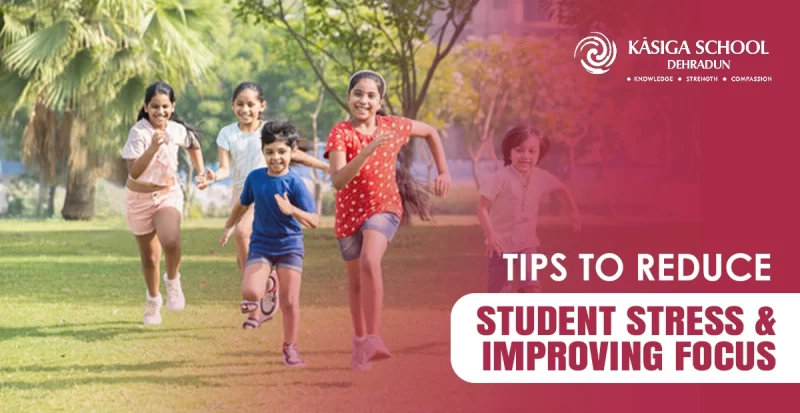The life of a student can be both exhilarating and overwhelming. From juggling academic responsibilities to managing extracurricular activities and social commitments, students often find themselves grappling with stress and struggling to maintain focus.
However, with the right strategies in place, it’s possible to reduce stress levels and improve concentration and focus, thus in this blog, we’ll explore seven effective tips to reducing student stress.
Prioritize Time Management
Effective time management is essential for reducing student stress and increasing productivity. So encourage students to create a to-do list or schedule that allocates time for studying, attending classes, participating in extracurricular activities and relaxation.
By doing so, students will learn to prioritize tasks and set realistic deadlines which in turn will avoid feeling overwhelmed and help them stay focused on their goals.
Practice Mindfulness and Relaxation Techniques
Activities such as deep breathing exercises, meditation, yoga and progressive muscle relaxation can help students calm their minds, reduce anxiety and enhance concentration, so no matter what, make sure to encourage students to incorporate these practices into their daily routine, especially during times of heightened stress.
Maintain a Healthy Lifestyle
A healthy lifestyle is crucial for supporting overall well-being and academic success. Not only that but physical activity helps reduce stress hormones, while a balanced diet provides essential nutrients for brain function.
Also, adequate sleep is also essential for cognitive function and emotional regulation, so encourage students to prioritize regular exercise, nutritious eating habits and adequate sleep.
By taking care of their physical health, students can better manage stress and improve their ability to focus.
Break Tasks into Manageable Steps
Large tasks can often feel overwhelming which may lead to increased stress and decreased productivity. So make sure to teach students to break down assignments or projects into smaller, more manageable steps.
By tackling one step at a time, students can maintain a sense of progress and accomplishment as well as reduce feelings of stress and boost motivation.
Create a Positive Study Environment
The study environment plays a significant role in a student’s ability to focus and retain information.
So encourage students to create a designated study space that is quiet, organized and free from distractions. This designated study space could be a library, a quiet corner of their home or a dedicated study room.
Furthermore, eliminating distractions such as electronic devices, clutter and noise can help students concentrate better and reduce stress.
Set Realistic Goals
Setting realistic goals is essential for maintaining motivation and reducing student stress; therefore encourage students to set specific, achievable goals that are aligned with their interests and abilities.
Breaking larger goals into smaller milestones can help students track their progress and stay motivated, also, celebrating achievements (no matter how small) can also boost confidence and reduce stress levels.
Seek Support When Needed
Whether it’s seeking clarification on academic material, discussing personal challenges or accessing mental health resources, students should feel empowered to reach out for assistance when needed.
So encourage students to seek support from teachers, counselors or peers when they are feeling overwhelmed or stressed. Remind them that it’s okay to ask for help and that support is available.
Wrapping It Up
Reducing student stress and improving focus requires a combination of all the tips that are mentioned above.
By implementing these seven tips to reducing student stress, students can cultivate resilience, improve their ability to concentrate and thrive academically and personally.
FAQs
How to deal with school stress and anxiety?
Ans: • Keep a journal.
• Exercise regularly.
• Eat nutritious, regular meals.
• Make sure you get adequate sleep.
• Meditating.
• Download an app that offers mindfulness practices or relaxation techniques (such as deep breathing or visualization)
How do teachers help students with anxiety?
Ans: As a teacher, one can
• Encourage the students to practice self-calming or anxiety-reducing techniques.
• Allow the students to have a self-calming item or family photos on hand.
• Include “call home” breaks (for students experiencing separation anxiety).


